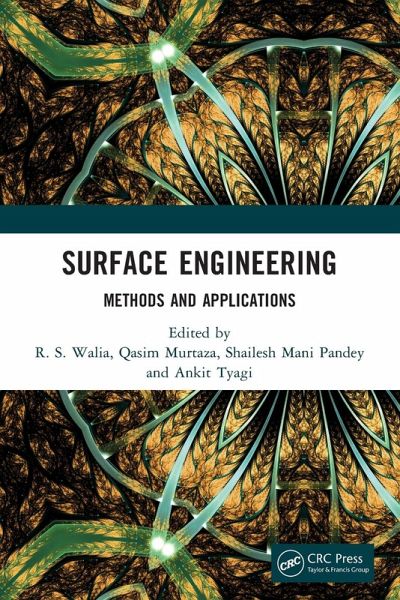R. S. Walia is a Professor and Head of the Department of Production & Industrial Engineering, Punjab Engineering College, Chandigarh, India. He earned his Ph.D. (2006) in the area of Centrifugal Force Assisted Abrasive Flow Machining Process from IIT Roorkee, India. He has also worked as Professor at Delhi Technological University, Delhi, India. He has visited various academic institutions and industries in several countries for academic pursuits. His research interests include Advanced Manufacturing Processes, Industrial Engineering, Work System Design and Ergonomics, Operation Research, Industrial Quality Control, Precision Manufacturing, and Advanced Manufacturing Processes such as metal coatings, free-standing metal coating components, hybrid stir casting & including tribological assessment, super-finishing processes, and re-manufacturing. He has guided 45 M.Tech theses and 14 Ph.D.s. He has published more than 100 research papers in reputed journals and conference proceedings and recieved best paper awards from Elsevier, Emerald, and Springer publication houses. He received the Commendable Research Award in recognition for his research during the year 2017, DTU, Delhi, and the Best Performance Award International Teams for NASA Moon Buggy Race at US Space and Rocket Centre, USA, April 2011. He was part of interview boards as expert member in public sector companies and government service commissions and also worked in the examination/research boards of various institutions and was involved in multiple institutional activities related to policy planning curriculum design, admission, evaluation & examination, and other academic processes. Qasim Murtaza is a Professor in the Department of Mechanical Engineering, Delhi Technological University, (Erstwhile Delhi College of Engineering) Delhi, India. He earned his Ph.D. (2006) in the area of Manufacturing Process, Dublin City University, Ireland. He has also worked as Research Associate at Metropolitan Manchester University, Manchester, UK. He has visited various academic institutions and industries in several countries for academic pursuits. His research interests include Precision Manufacturing and Advanced Manufacturing Processes such as metal coatings, free-standing metal coating components, hybrid stir casting & including tribological assessment, super-finishing processes, and re-manufacturing. He has guided 33 M.Tech theses and 7 Ph.D.s. He has published more than 97 research papers in reputed journals and conference proceedings and has received best paper awards from Elsevier, Emerald, and Springer publication houses. He was part of interview boards as expert member in public sector companies and government service commissions and also worked in the examination/research boards of various institutions and was involved in multiple institutional activities related to policy planning, curriculum design, admission, evaluation & examination, and other academic processes. S. M. Pandey is an Assistant Professor in the Department of Mechanical Engineering, National Institute of Technology (NIT) Patna, Patna, India. He earned his Ph.D. (2017) in the area of Manufacturing Process in Advance Coating, Delhi Technological University, Delhi, India. He has also worked as Assistant Professor at Delhi Technological University. His areas of research include Surface Modification, Coating, Tribology, and Material Processing; Composite Materials; Metal Matrix Nanocomposites; Nano-Coatings; Wear; Deformation and Corrosion. He also has a good command over teaching subjects like Welding Technology, Casting, Wear Mechanics, Material Science, Non-Destructive Testing, Metrology, and Composite Materials. Dr. Pandey has over 2 years of Industry Experience at Shriram Pistons and Rings Limited (SPRL) Ghaziabad in the field of Production Planning and Control and 8.5 plus years of teaching and research in various reputed organizations such as Delhi Technological University and NIT Patna. During this period, he has published 35 research papers in peer-reviewed international journals having good impact factors and 28 research papers in reputed international and national conferences in India as well as in abroad. Apart from this, recently, he has also published 1 chapter in books published by Springer. Nine students have completed their B.Tech projects and 6 students have completed their M.Tech dissertations under his guidance. Ankit Tyagi is an Assistant Professor in the Department of Mechanical Engineering, SGT University, Haryana, India. He is pursuing his Ph.D. in the area of Manufacturing Process in Advance Coating, Delhi Technological University, Delhi, India. He has visited various academic institutions and industries in several countries for academic pursuits. His areas of research include Surface Modification, Coating, Tribology, and Material Processing; Composite Materials; Metal Matrix Nanocomposites; Nano-Coatings; Wear; Deformation and Corrosion. He also has a good command over teaching subjects like Welding Technology, Casting, Wear Mechanics, Material Science, Non-Destructive Testing, Metrology, and Composite Materials. He has published more than 30 research papers in reputed journals and conference proceedings.






